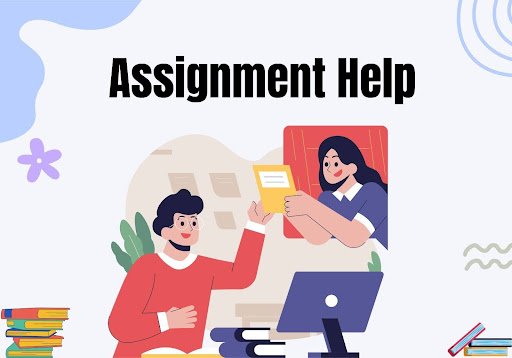Table of Contents

In today’s fast-paced academic environment, students are constantly expected to adapt, grow, and take ownership of their learning journey. One of the most effective ways to stay on track and continuously improve is by developing strong self-assessment skills. Reflecting on one’s learning process not only promotes academic success but also fosters personal growth, independence, and lifelong learning capabilities. Whether reviewing coursework or seeking assignment help, understanding how to assess your own learning can make a significant difference in academic performance.
Are you a GCSE student preparing for exams, an undergraduate university student juggling coursework, or a college student plodding through complex assignments? Self-assessment is your solution for maximizing your learning returns. This comprehensive guide delves into the skill of self-assessment, offering down-to-earth tips and expert advice on how to enhance your learning assessment.
What Is Self-Assessment in Education?
Self-assessment is the process of judging oneself, one’s academic performance, progress, and understanding. It is a self-discovery of strength, self-recognition of weaknesses, and formation of measures of improvement in future learning. When used alongside assignment help, self-assessment can empower students to better understand the feedback they receive and take meaningful steps toward academic improvement.
- Encourages autonomy: Makes learners independent learners.
- Develops critical thinking: Involves analysis, evaluation, and judgement.
- Improves academic performance: Leads to enhanced performance due to early discovery of gaps in knowledge.
- Increases confidence: Assures learners of their ability.
Under the assignment help context, self-assessment skills refer to the ability to critically read your own work prior to submission and ensure that it’s up to academic standards.
Most Important Parts of Good Self-Assessment
1. Clear Learning Objectives
Prior to assessing any work, it’s necessary to have an understanding of what the expectations are. These may include:
- Understanding the marking rubric
- Reading assignment guidelines
- Establishing personal learning objectives
Having clarity serves to bring the self-assessment closer to outcomes.
2. Reflective Thinking
Self-assessment is all reflection. Ask yourself:
- What did I learn?
- How did I learn this?
- What can I do to get better?
This type of metacognitive reflection enhances learning strategy:
knowledge and results in improved study habits.
3. Utilizing Checklists and Rubrics
Checklists or rubrics are not for teachers alone. Students can make use of them as well:
- Create a checklist from the requirements of the assignment
- Checkmark completed tasks
- Emphasize areas to improve
These tools are very useful when seeking assignment help since they are a tool for giving constructive feedback.
4. Feedback and Peer Review from Others
Using others’ feedback can complement self-assessment:
- Participate in study groups
- Share drafts for peer review
- Compare your work to others
Other people’s feedback should never take the place of self-assessment, but could introduce new insights.
Developing Self-Assessment Skills
Practice Continuous Reflection
- Journaling: Keep a learning journal to record insights, progress, and setbacks.
- Weekly Reviews: Dedicate time every week to reflect on what went well and what didn’t.
Set SMART Goals
Specific, Measurable, Achievable, Relevant, and Time-bound goals provide structure:
Example: Instead of “I want to improve in maths,” say “I will complete three algebra practice papers by Friday.”
Use Formative Assessment Techniques
Formative assessments don’t belong exclusively to teachers. Self-quizzes, flashcards, and dummy exams assist with measuring your learning.
- Go through incorrect answers
- Learn from wrong answers
Redirect study plans based on this knowledge
- Welcoming Constructive Feedback
- Use feedback as learning
- Use careful assessment of feedback by assignment aids or tutor
- Feedback is incorporated into subsequent assignment
- Good time management strategies, tried and tested:
- There must be enough time for good self-checking:
- Break the assignments into chunkable pieces
Use planners and timer
- Submit ahead of schedule
- Lack of Motivation
- Create short-term rewards
- Study with others for accountability
- Establish long-term goals
- Fear of Being Honest
Aids and Resources for Self-Assessment
- Quizlet: Share and create flashcards
- Trello: Plan assignments and goals
- Google Docs: Comment and collaborate on drafts
Periodical Self-Assessment: Advantages
Academic Gains
- Enhanced grades with increased understanding
- Easy and efficient study sessions
- Decreased pre-exam and submission stress
Personal Gains
- Enhanced level of self-knowledge
- Enhanced decision-making skill for making the right choices
- Enhanced management of time and resources
- readiness to be hired
- Value to employers by reflective learners
- Self-reflection enhances goal-planning and reviewing skills
Instructions for how to Reflect on Assignment Performance
Pre-Submissions
- Review briefly and ensure conformity
- refer to rubric or checklist
- Verify grammar, referencing, presentation
- On Receipt of Feedback
Thoroughly read all feedback provided
- Highlight issues recurring
- Lesson application to future assignments
- inclusion of feedback is a significant component of assignment success strategies.
Monitoring Progress Over Time
- Compare different performances over past and recent past
- see patterns in making errors
- Adapt learning strategies accordingly
Integrating Self-Assessment in Everyday Learning
Ask for time to self-assess
- Participate in class discussions and reviews
- Volunteer to lead peer feedback sessions
At University
- Utilize office hours to iron out feedback
- Work with academic support groups
- Keep a digital portfolio
Independent Study
- Arrange weekly review sessions
- Keep a “lessons learnt” record
- Weekly productivity review
Conclusion
It is essential to being a good learner and improving to achieve your objectives. It is helpful to have constant feedback by utilizing your education as learning time to improve and even more successful.
For the extra help needed, tools like Assignment in Need (assignnmentinneed.com) can yield helpful assignment help material. But the long-term aim should always be to use such tools as a step toward becoming more and more independent and confident student.
Focusing on increasing self-reflection isn’t a passing trend. It requires effort, practice, and dedication to keep building. But when integrated into everyday routines of learning, the reward is long-term and richly rewarding.


